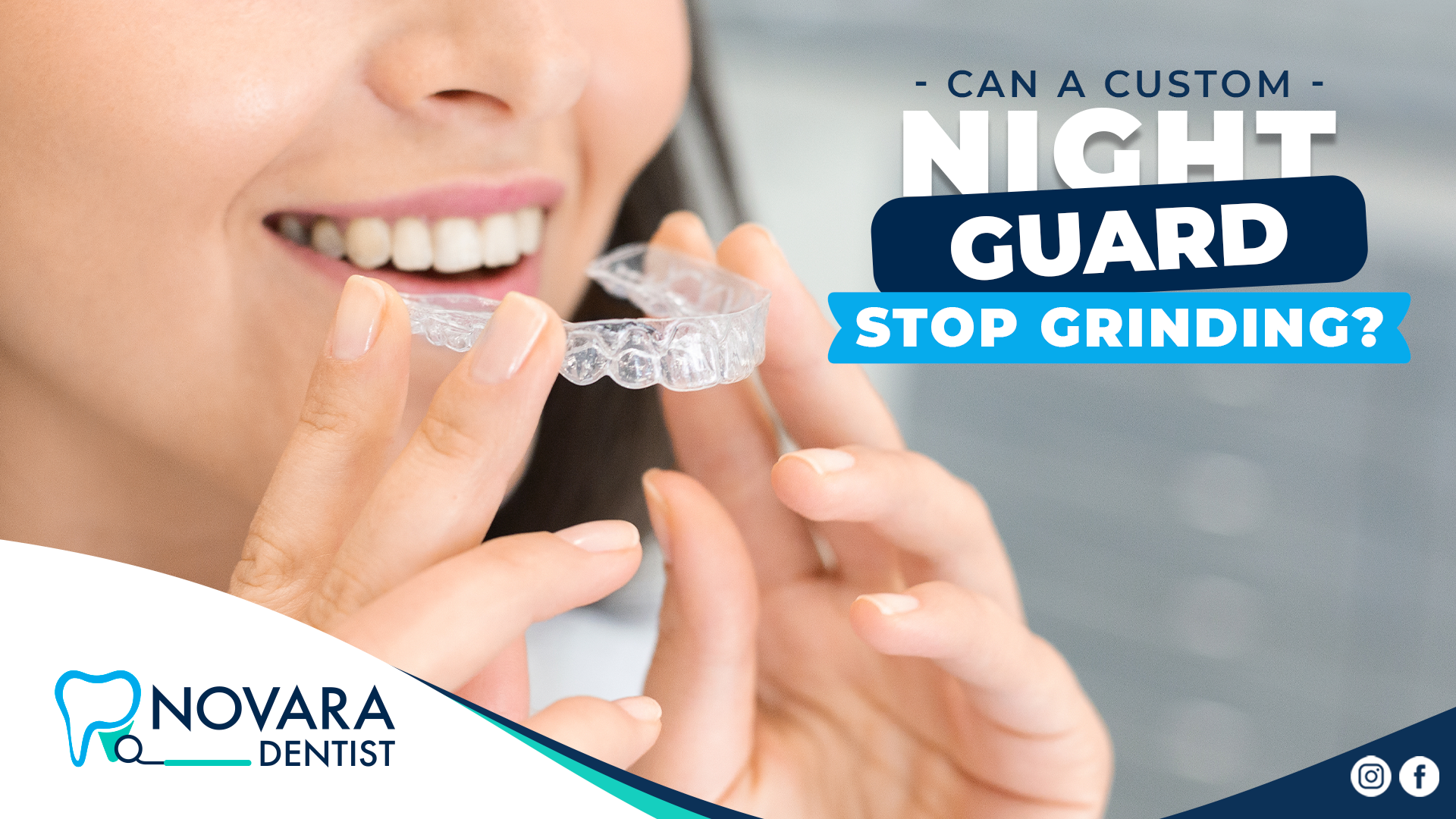Do you grind your teeth in your sleep? You may not even realize it. Believe it or not, it’s a fairly common problem that affects a lot of people. Tooth grinding is also known as bruxism and most often happens when people sleep and most people have no recollection of doing it. Often times, the spouse will hear grinding happen during the night. Occasional teeth grinding doesn’t usually cause harm, but when it occurs regularly, teeth can be damaged and other complications can arise.
Recognize the signs:
You need to know what signs to look for so you can identify Bruxism as the problem and seek help from your dentist so you can be examined signs of bruxism.
Here are the most common signs:
- Headaches
- Neck or facial pain
- Tooth sensitivity
- Flat or chipped teeth
- Waking up with sore jaw muscles
What Causes Teeth Grinding?
Stress and anxiety can cause teeth grinding; however, it can also be caused by a misaligned bite, crooked or missing teeth.
Can a Custom Night Guard Stop Grinding?
One of the most common treatments recommended by dentists is a custom night guard for people who grind their teeth while they’re sleeping. A custom night guard is a removable appliance that fits over your upper or lower teeth that is custom made for you. It is used to stop damage caused by grinding or clenching your teeth while you sleep.
These night guards are aligners that help protect your teeth from the damage caused by grinding them against each other or clenching them together. They can also help position your jaw in a comfortable position and limit your ability to move your jaw while you’re sleeping.
Custom Night Guards vs. Over the Counter Night Guards
Even though the initial purchase of an over the counter night guard may cost less, a custom night guard made specifically for you by your dentist will be a better, more cost-effective solution. Custom night guards are made using a professional mold for your teeth, which will ensure a much more comfortable solution. They also take your jaw position into account, unlike their drugstore counterparts; without fitting your jaw and adjusting your aligner, you may end up with even more problems.
Chronic teeth grinding can result in the loosening, fracturing, or loss of teeth. It may wear teeth down to stumps. When that happens, implants, root canals, crowns and bridges, partial or even complete dentures may be needed.
Additional Treatments for Bruxism
Even though night guards are one of the most common treatments for bruxism, there are other things that may help.
Tips to help you stop teeth grinding include:
- Avoid or cut back on foods and drinks that contain caffeine.
- Avoid alcohol.
- Do not chew on pens or pencils. Avoid chewing gum as it allows your jaw muscles to get more used to clenching and makes you more likely to grind your teeth.
- Train yourself not to clench or grind your teeth. If you notice that you clench or grind during the day, position the tip of your tongue between your teeth. This practice trains your jaw muscles to relax.
- Relax your jaw muscles at night by holding a warm washcloth against your cheek in front of your earlobe.
Dr Novara can create a custom mouth guard for you
Dr Novara offers 3D panoramic x-ray images for the highest quality diagnostic information for our patients. In using this 3D technology, they also provide sleep apnea appliances and night guards.
Tooth grinding isn’t something you need to live with. You can get relief and stop through proper treatment from your dentist. If you’re looking for a solution, or suspect you suffer from bruxism, please call our South Florida Offices to schedule your appointment. We’ll evaluate your individual situation and talk with you about the best treatment for you.
